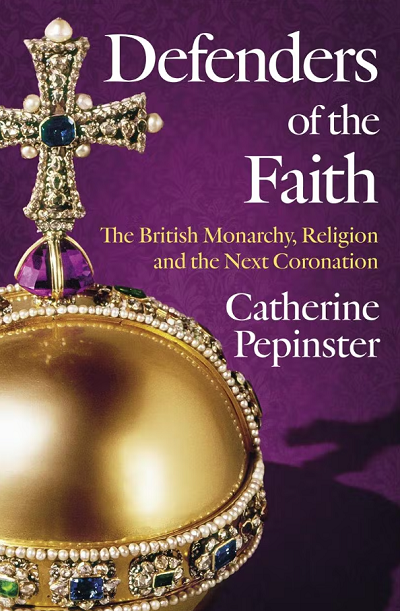In The Critic, David Scullion reviews Catherine Pepinster’s book Defenders of the Faith: The British Monarchy, Religion, and the Next Coronation:
The longevity of Elizabeth II has (mostly) allowed us to avert our attention from the question of the relationship between church and state for a very long time. Given that her 70 years on the throne have seen the relentless rise of the forces of philistine secularism and constitutional vandalism, one cannot help but feel grateful for the benign obscurity that her reign has cast over such issues. Alas, this cannot be the case for much longer.
During her coronation in 1953, the Queen made solemn oaths to maintain the “true profession of the Gospel”, “the Protestant Reformed Religion established by law” and the Church of England. She was anointed with holy oil as the chosen ruler of God in a ceremony that owes its ultimate origins to the monarchy of Israel, and which can be traced back in England to at least the coronation of Edgar in 973 AD.
In 1953 this solemn ceremony was received with little in the way of controversy, except in terms of the debate over whether it should be televised. In the end it was, but with the most holy part of the rite — the coming of the Holy Spirit and God’s blessings in the sacred moment of anointing — kept away from the nation’s prying eyes.
If the next coronation is similar, one can only imagine the chorus of outraged, irreverent squawking that will sound from the amassed ranks of secular-liberal opinion-formers. Despite this unappetising prospect, it seems reasonable to discuss what form it should take now, given that 70 years have elapsed since the last one — a task that Catherine Pepinster’s new book purports to undertake.
I say “purports to undertake”, because in fact the vast majority of it is taken up with a rather pedestrian rehearsal of British religious and monarchical history since the Reformation, followed by long and dull accounts of what little we know about the spiritual lives of HM the Queen, Prince Philip and Prince Charles.
These central six chapters of the book are overwhelmingly preoccupied with a topic which clearly concerns the author more than any other: the nature of the relationship between Roman Catholicism and the monarchy, which seems like a rather odd focus given that the British monarchy has not been in communion with the Church of Rome since the 16th century.
She spends a large proportion of the book bewailing the historical inequities perpetrated against Ms Pepinster’s co-religionists by the British establishment, and demonstrating how recent decades have seen a real — albeit cautious — rapprochement between the monarchy and Roman Catholics. She goes on to make a series of commonplace observations about the country’s growing secularism, the rise of religious and cultural diversity, and the decline of Anglican congregations since 1953.
If one wants to know what the equivocating Ms Pepinster thinks the implications of all these trends are for the next coronation and relations between church and state, then one will have to read between the lines. Although her account of the various possibilities is a useful summary, working out what she actually favours is like trying to staple a jellyfish to wet soap.




